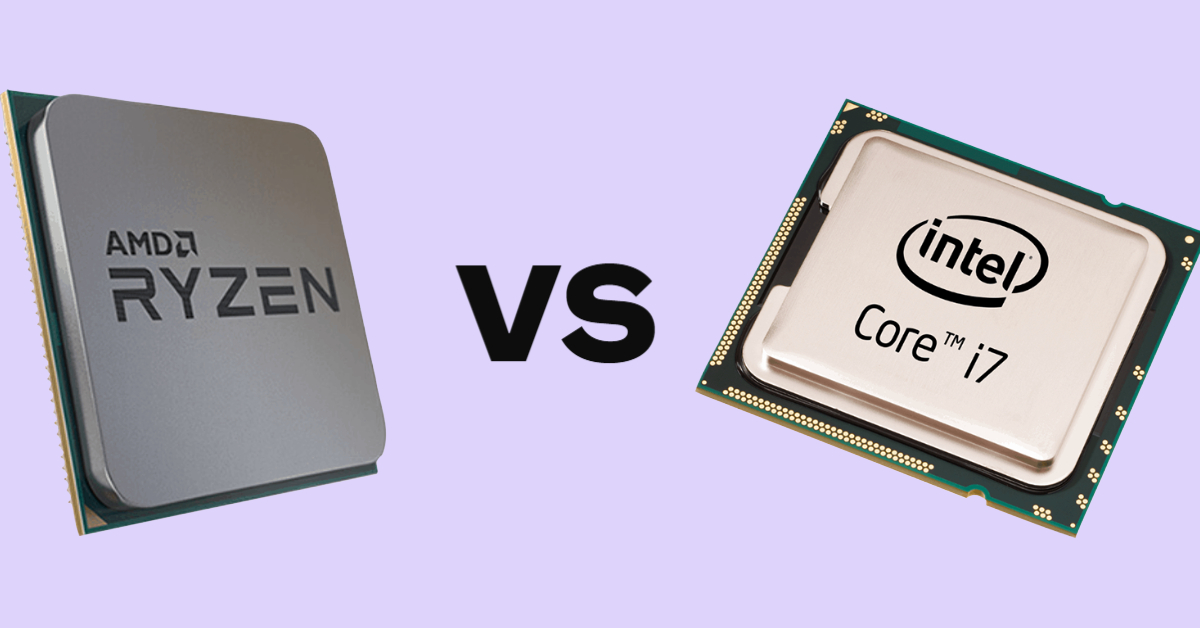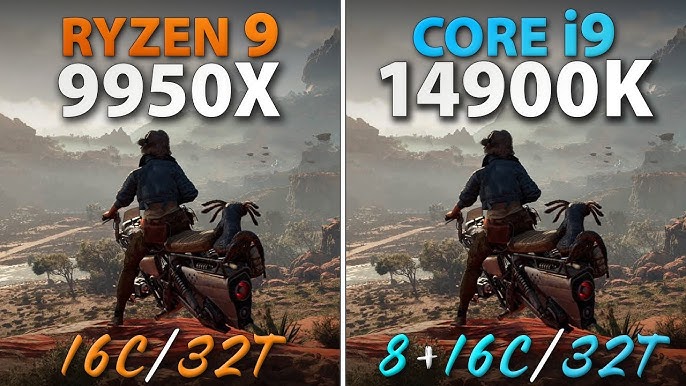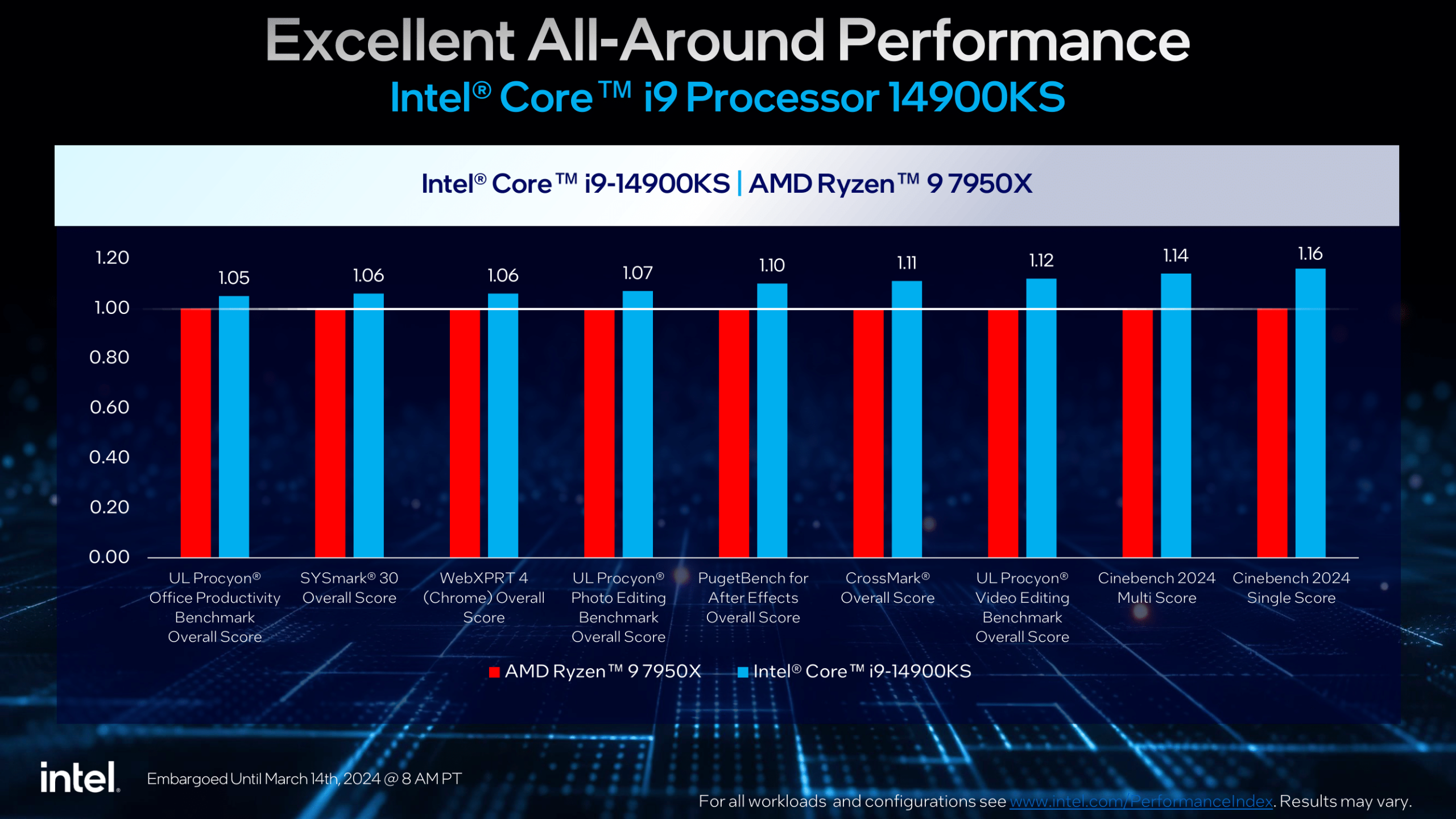Showdown: AMD Ryzen 7 vs Intel i7
The rivalry between AMD and Intel in the processor market has been ongoing for years. When it comes to choosing a processor, the decision between AMD Ryzen 7 and Intel i7 is significant. It’s crucial to make an informed decision based on your specific needs and use cases. This article aims to provide a comprehensive comparison of the two processors, highlighting their performance, power efficiency, architectural differences, gaming and multimedia capabilities, pricing, and prospects.
The Basics

What is a Processor?
A processor, also known as a central processing unit (CPU), is a crucial component of a computer system. It is responsible for executing instructions and performing calculations, making it the “brain” of the computer. The processor interprets and carries out instructions from the computer’s memory, enabling the execution of various tasks and operations.
The Evolution of AMD Ryzen 7 and Intel i7
Both AMD Ryzen 7 and Intel i7 series have a rich history of advancements and improvements. AMD Ryzen 7 was introduced in 2017, featuring the Zen microarchitecture. It brought significant improvements in performance and power efficiency compared to its predecessors. Intel i7, on the other hand, has been a flagship series for Intel since 2008. It has undergone several generations, with each iteration introducing enhancements in performance, power consumption, and features.
Performance and Power Efficiency
Benchmark Tests and Performance Comparison
Benchmark tests are essential for evaluating the performance of processors. They provide standardized metrics to compare the capabilities of different processors. When comparing AMD Ryzen 7 and Intel i7, it’s important to consider various benchmark tests, such as CPU-intensive tasks, multitasking scenarios, and gaming performance.
In terms of raw performance, both AMD Ryzen 7 and Intel i7 processors offer excellent capabilities. The performance may vary depending on the specific model and generation. However, AMD Ryzen 7 processors have gained a reputation for delivering exceptional multi-threaded performance, making them ideal for resource-intensive tasks like video editing, 3D rendering, and data analysis. Intel i7 processors, on the other hand, excel in single-threaded performance, which is crucial for tasks that rely heavily on a single core, such as gaming and certain software applications.
Real-world performance scenarios also play a significant role in determining the suitability of a processor. It’s important to consider factors like clock speed, cache size, and memory support. Both AMD Ryzen 7 and Intel i7 processors offer high clock speeds and ample cache, ensuring smooth and responsive performance in everyday tasks.
Power Efficiency and Thermal Design Power (TDP)
Power efficiency is a crucial aspect to consider when choosing a processor. It directly affects the overall energy consumption of the system and the heat generated. AMD Ryzen 7 processors, particularly the newer generations, have made significant strides in power efficiency. The Zen microarchitecture and advanced manufacturing processes have allowed AMD to deliver impressive performance while keeping power consumption in check.
Intel i7 processors also offer good power efficiency, especially in their latest generations. However, it’s worth noting that Intel has faced some challenges in maintaining power efficiency due to the limitations of its 14nm process technology.
Thermal Design Power (TDP) is another important factor to consider. It represents the maximum amount of heat generated by a processor under normal operation. Lower TDP values indicate better power efficiency and heat management. AMD Ryzen 7 processors generally have higher TDP values compared to Intel i7 processors. However, this doesn’t necessarily mean they consume more power or generate more heat. The architectural differences and manufacturing processes play a significant role in overall power efficiency.
Architectural Differences
Microarchitecture: Zen vs. Skylake
The microarchitecture of a processor determines its overall performance, power efficiency, and capabilities. AMD Ryzen 7 processors are based on the Zen microarchitecture, while Intel i7 processors utilize the Skylake microarchitecture.
The Zen microarchitecture introduced by AMD brought significant improvements in performance and power efficiency compared to their previous architectures. It features a modular design with a focus on multi-threaded performance. The Zen architecture also introduced features like simultaneous multi-threading (SMT), which allows each physical core to handle two threads simultaneously, effectively doubling the number of available threads.
Intel’s Skylake microarchitecture, on the other hand, focuses on single-threaded performance and efficiency. It introduced advancements in instruction execution, cache management, and power management. Skylake processors have a strong single-core performance, making them well-suited for tasks that rely heavily on a single thread.
When comparing the two microarchitectures, it’s important to consider the specific use cases and requirements. AMD Ryzen 7 processors excel in multi-threaded workloads, making them a great choice for tasks like content creation, video editing, and 3D rendering. Intel i7 processors, with their strong single-threaded performance, are well-suited for gaming, software applications that prioritize single-threaded performance, and tasks that require quick responsiveness.
Core Count, Threads, and Cache
The core count, threads, and cache size are important considerations when comparing AMD Ryzen 7 and Intel i7 processors.
AMD Ryzen 7 processors typically offer higher core counts compared to Intel i7 processors. This means that AMD processors can handle more simultaneous tasks and benefit from multi-threaded performance. For example, a Ryzen 7 processor may have 8 cores and 16 threads, allowing it to handle 16 tasks simultaneously. Intel i7 processors usually have fewer cores but can still deliver strong performance due to their higher single-threaded performance.
Cache size is also an important factor to consider. The cache is a small, high-speed memory that stores frequently accessed data for quick retrieval. Both AMD Ryzen 7 and Intel i7 processors have ample cache sizes, which contribute to their overall performance. However, the specific cache configurations may vary between different models and generations.
When it comes to multitasking and resource-intensive tasks, AMD Ryzen 7 processors have an advantage due to their higher core counts and thread capabilities. They can handle a larger number of tasks simultaneously, making them ideal for content creators, professionals in creative industries, and users who frequently engage in multi-threaded workloads. Intel i7 processors, with their strong single-threaded performance, are well-suited for tasks that prioritize quick responsiveness and single-threaded performance, such as gaming and certain software applications.
Gaming and Multimedia Performance
Gaming Performance and Graphics Capabilities
Gaming performance is a crucial aspect to consider when choosing a processor. Both AMD Ryzen 7 and Intel i7 processors offer excellent gaming capabilities, but there are some differences to consider.
AMD Ryzen 7 processors have made significant strides in gaming performance with their latest generations. They offer strong multi-threaded performance, which can benefit games that utilize multiple cores effectively. Additionally, AMD processors often come with integrated Vega graphics, providing decent graphics capabilities for casual gaming or situations where a dedicated graphics card is not available.
Intel i7 processors, on the other hand, excel in single-threaded performance, which is crucial for gaming performance in many titles. They generally offer better single-core performance compared to AMD processors. Additionally, Intel processors often come with integrated Intel UHD or Iris graphics, providing decent graphics capabilities for casual gaming or low-demanding titles.
When it comes to gaming, it’s important to consider other factors as well, such as clock speed, GPU integration, and compatibility with game titles. Some games may be optimized for Intel processors, while others may take advantage of AMD’s multi-threaded performance. It’s recommended to check the specific requirements and recommendations for the games you intend to play.
Multimedia Processing and Content Creation
Both AMD Ryzen 7 and Intel i7 processors offer excellent performance for multimedia processing and content creation tasks.
AMD Ryzen 7 processors, with their strong multi-threaded performance, are well-suited for content creation tasks such as video editing, 3D rendering, and graphic design. The higher core counts and thread capabilities allow for faster rendering times and smoother multitasking. Additionally, AMD processors often come with technologies like Precision Boost and Extended Frequency Range (XFR), which dynamically optimize performance based on workload and cooling capabilities.
Intel i7 processors, with their strong single-threaded performance, are also capable of handling multimedia processing tasks effectively. They excel in applications that prioritize single-threaded performance, such as certain video editing software and audio production tools. Intel processors often come with technologies like Turbo Boost, which dynamically increases clock speeds to deliver better performance when needed.
When choosing between AMD Ryzen 7 and Intel i7 for multimedia processing and content creation, it’s important to consider the specific software you will be using. Some applications may be optimized for multi-threaded performance, while others may benefit more from single-threaded performance. It’s recommended to check the software requirements and recommendations to ensure compatibility and optimal performance.
Pricing and Value for Money
Price Comparison and Market Segmentation
Pricing is an important factor to consider when choosing between AMD Ryzen 7 and Intel i7 processors. Both brands offer a range of models at different price points to cater to various market segments.
AMD Ryzen 7 processors generally offer a more competitive price compared to Intel i7 processors. This has been a significant advantage for AMD, as they provide similar or even better performance at a lower cost. However, it’s important to note that the specific pricing may vary depending on the model, generation, and availability.
Intel i7 processors, on the other hand, tend to be priced higher compared to AMD Ryzen 7 processors. Intel has traditionally positioned its processors as premium options, which is reflected in its pricing strategy. However, Intel processors often come with a strong reputation for reliability and compatibility.
Longevity and Future-Proofing
When investing in a processor, it’s important to consider its longevity and future-proofing capabilities. Technological advancements and software requirements can change over time, and you want to ensure that your processor remains relevant for a reasonable duration.
Both AMD Ryzen 7 and Intel i7 processors are built to provide good longevity. However, it’s worth noting that AMD has a history of providing longer socket compatibility for their processors. This means that you may have more options for future upgrades without having to change the entire motherboard.
Future-proofing also depends on factors like the specific model and generation of the processor. It’s recommended to choose a processor that offers a good balance between current performance and potential future needs. Consider factors like core count, clock speed, and compatibility with emerging technologies.
Additionally, staying updated with the latest software requirements and technological advancements is crucial. This will help you make informed decisions and ensure compatibility with future software updates and hardware innovations.
Ultimately, future-proofing is a challenging task, as technology evolves rapidly. However, both AMD Ryzen 7 and Intel i7 processors offer solid options with good longevity, allowing you to enjoy high-performance computing for several years.
Conclusion
Choosing between AMD Ryzen 7 and Intel i7 processors requires careful consideration of various factors. Both processors offer excellent performance, power efficiency, and capabilities for different use cases.AMD Ryzen 7 processors excel in multi-threaded performance, making them ideal for resource-intensive tasks like content creation, video editing, and 3D rendering. They also offer competitive pricing, making them a popular choice for budget-conscious users.
| Feature | Ryzen 7 | Core i7 |
|---|---|---|
| Core count | Typically 8 or more | Typically 8 or more |
| Thread count | Typically 16 or more | Typically 16 or more |
| Single-core performance | Slightly slower | Slightly faster |
| Multi-core performance | Slightly faster | Slightly slower |
| Price | Generally more affordable | Generally more expensive |
| Overclocking | Generally easier | Generally more difficult |
| Platform compatibility | AM4 motherboards | LGA1700 motherboards |
| Integrated graphics | No | Yes |
Recommendation
- Gaming: Both Ryzen 7 and Core i7 CPUs are excellent for gaming. However, if you are playing games that are heavily multi-threaded, such as open-world games and RTS games, then a Ryzen 7 CPU may offer a slight advantage.
- Video editing and 3D rendering: Ryzen 7 CPUs are generally better for video editing and 3D rendering than Core i7 CPUs due to their higher core count and thread count.
- General productivity: Both Ryzen 7 and Core i7 CPUs are excellent for general productivity tasks such as web browsing, office work, and email. However, if you frequently work with large datasets or demanding applications, then a Ryzen 7 CPU may offer a slight advantage.
Conclusion
The best CPU for you will depend on your specific needs and budget. If you are looking for the best possible performance in multi-threaded workloads, then a Ryzen 7 CPU is the better choice. If you are looking for the best possible single-core performance, then a Core i7 CPU is the better choice. However, both platforms offer excellent performance, and the best choice for you will depend on your specific needs and budget.




